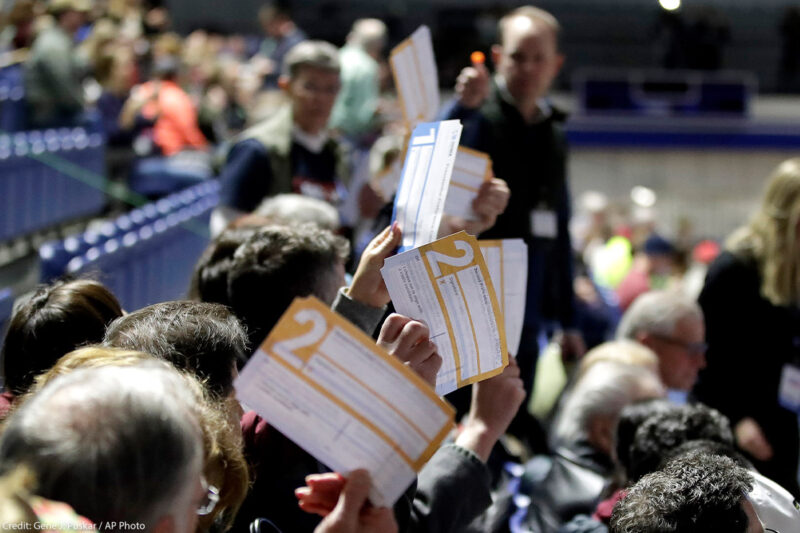What the Caucuses Taught me РЯАФУХПЊНБНсЙћ Inequities in our Electoral System


Find the house, approach the door, ring the doorbell and wait with bated breath to see who will show on the other side т this was my daily routine while in Iowa. During the winter of my senior year of college, I volunteered in Ankeny, Iowa with a presidential campaign. The new experiences brought me relationships and campaign knowledge, but also placed the inequity of the caucus process front and center. Each time a door opened, I was reminded that people who look like me, the Black population in Iowa, constitute only
Once the police were called on me for canvassing a neighborhood and a fellow team member of color was verbally harassed, the inequities were no longer solely related to the caucus process.
The social inequities that we already knew as Black and Brown women were reinforced as well. What we faced, however, was marginal in light of the millions of racial minorities living without access to voting rights in the United States. As we head into the general election, we must remember the states whose nominating contests and voters set the stage for this yearтs primary, and the voters who werenтt allowed to cast their ballots in those contests.
Additionally, the same groups that are underrepresented by population, in comparison to their white counterparts, are those that are overrepresented in the criminal justice system. We must not forget that the racial and social inequities that pervade our nation have a direct impact on the electoral process.
As the first state in the nation to hold a caucus or primary, this small, overwhelmingly white state with variable still sets the precedent for the trajectory of the entire presidential primary. I could not understand how a state that is not representative of the racial, ethnic, and class of the nation could still be first. Iowa is not the only state, however, that highlights inequities in the election process.
The historically positive impact that the Iowa caucuses, or even the New Hampshire primary, can have on a candidateтs campaign is irrefutable, but it is also inherently inequitable to systematically push the voices of people of color to the background for the sake of tradition and status quo.
This is not the only way that the electionтs process indirectly favors white voters. Three states т Iowa, Virginia, and Kentucky т in their state constitutions, permanently disenfranchise all residents convicted of felonies unless the governor restores their right to vote.
According to the 2010 census, states has a disproportionately high number of Black and Brown people in prisons and jails, with Black, Native American, and Latinx incarceration rates continuing to rise. In Virginia, this disparity is : In 2015, Black adults comprised 19 percent of the stateтs population, but 57 percent of the stateтs imprisoned population.
Black and Hispanic populations are disproportionately represented in the United Statesт prison populations, comprising of the countryтs prison population but only 13 percent and 16 percent of the total nation's population, respectively, according to the .
Black and Brown people in the U.S. are consequently more likely to be impacted by these undemocratic restrictions. The permanent erasure of voting rights for those convicted of a felony is also a reminder of the excessive voting restrictions that Black and Brown Americans have always faced and harkens back to Jim Crow.
States have begun to take steps to lessen disparities and their many impacts. In 2016, Former Virginia Gov. Terry McAuliffe to permanently voting rights to 200,000 Virginians, and was ultimately able to restore voting rights to 156,221 people in the state.
Kentuckyтs recently elected governor, Andy Beshear, restored the right to and run for office to over 140,000 residents who have completed sentences for nonviolent felony offenses.
There isin Iowa, supported by Gov. Kim Reynolds and the РЯАФУХПЊНБНсЙћ of Iowa, that would amend the state constitution and end permanent disenfranchisement for any felony.
Even though there are still multiple steps before the constitutional amendment could come to fruition, the proposed amendment is a positive step in the direction towards restoring rights to all Iowans.
We can never forget nor negate that our democracy works best when all voices are heard. We will continue to fight for the rights of all.

